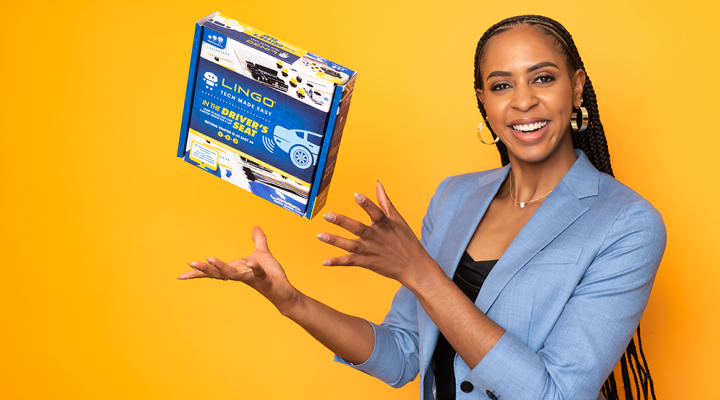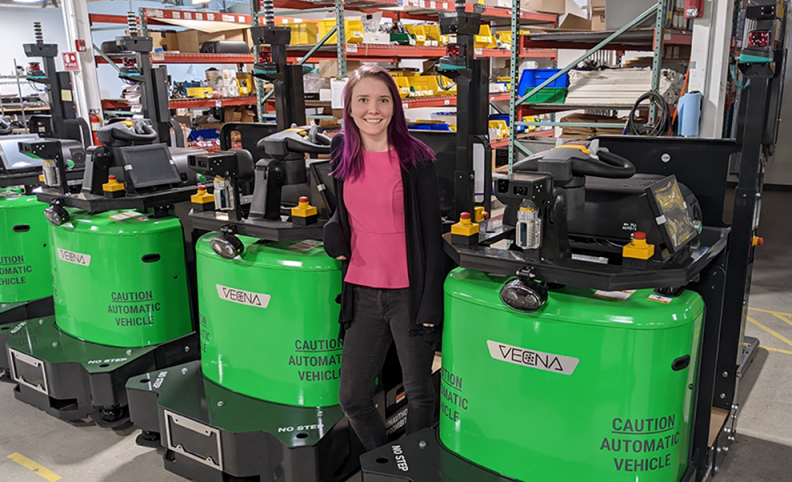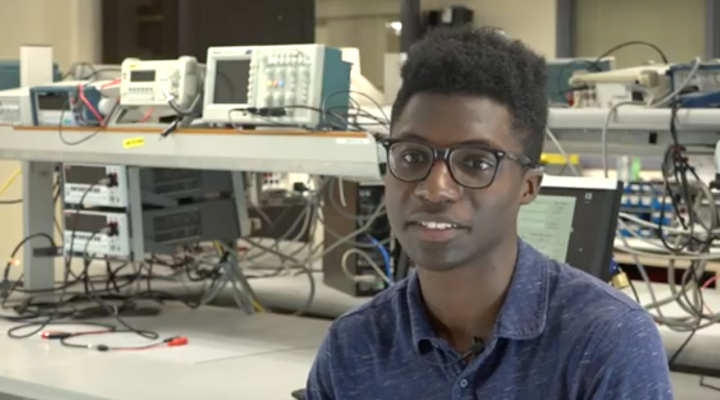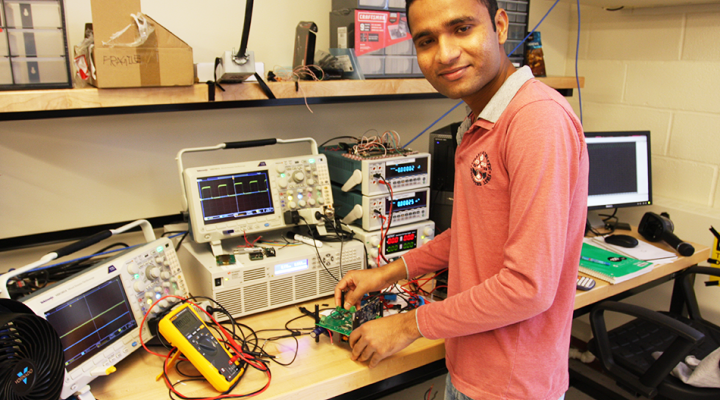During her time in Cornell ECE, Katie Bradford ’20, M.Eng. ’20 was recognized as an emerging leader, and her dedication and enthusiasm as a maker, a teammate and a teaching assistant were well-known on campus. Her studies focused on hardware, ranging from UAVs with the CUAir autonomous aerial system project team, to robotics projects in the Maker Club. Outside of class she could often be found in the Rapid Prototyping Lab helping other students try out new projects or setting up stages for artists with the Cornell Concert Commission.
Bradford recently relocated to Boston to join Vecna Robotics, a company dedicated to improving human/machine workflows, building robots for material handling applications in industrial spaces, such as the autonomous pallet jacks pictured above.
Responding to questions by email, Bradford highlighted the ways her experience in Cornell ECE prepared her for the next stage in her career, especially focusing on the maker-inspired, hands-on learning opportunities that engaged her the most.
Interview with Katie Bradford '20, M.Eng. '20
Why did you choose Cornell Engineering for your B.S.?
I chose Cornell because of the potential I saw to do real, hands-on work. Between the project team program, research and maker spaces, there were plenty of opportunities to work on projects and learn by doing.
What drew you to ECE?
I was interested in ECE because it is so cross disciplinary. ECEs have the opportunity to build hardware and write software, and work on a wide range of systems including communications, power systems, digital design, analog design, firmware, and more. Because I did not yet know specifically what I wanted to do, this seemed like a perfect fit, and I ended up loving many parts of it!
What was your M.Eng. project and how did it relate to your previous studies?
My M.Eng. project was designing and running a PCB design seminar. I really enjoyed doing PCB design for my project team and during summer internships but found that there was no formal education for PCB design at Cornell in the ECE department. I worked with the Cornell Maker Club, for which I was an officer during my undergrad, and ran the seminar with 20 students. It was very rewarding to transfer some of the knowledge and skills I had gained over my four years at Cornell to other students. I hope the class continues now that I am gone!
Why is ECE an ideal major for someone interested in robotics?
ECE is so cross-disciplinary. With robotics, you need communications, power systems, digital design, analog design, firmware and more. You need to interface mechanical systems and the software running on those systems, and that's where ECE lives.
What have you been up to since graduating?
I recently moved to Boston to start working as an Electrical Engineer at Vecna Robotics, a warehouse robotics startup focusing on automated material handling. The skills I learned at Cornell definitely prepped me to start here, and I'm excited to keep applying and expanding my skills.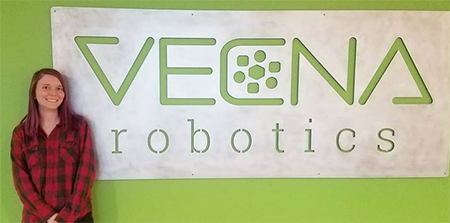
How did your ECE experience prepare you for what you are doing now?
Of course the basics of circuits classes and the like are crucial to be an electrical engineer in the workplace. But on top of that, my experience doing hands on work through my project team and the maker club prepared me to transfer those book skills to real hardware.
What advice would you give to students considering a similar path to yours?
Worry less about getting straight A’s and more about getting your hands on some hardware! You have to build things to learn practical skills. Learn how to solder, play around with an Arduino or Raspberry Pi, pick an idea for a project and make it yourself! It can be intimidating at first, because you don't even know what you don't know, but start simple and learn from your mistakes.
